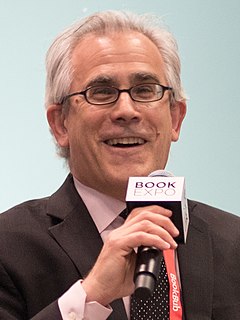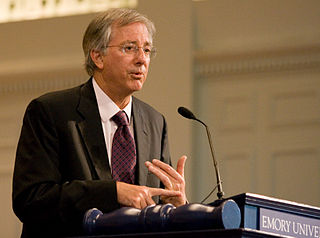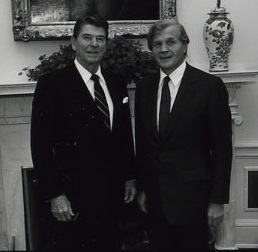A Quote by Richard N. Haass
Indeed, in foreign policymaking, inconsistency is often a virtue. I speak not of principles but of policy.
Quote Topics
Related Quotes
This is the problem with foreign policy - talking about foreign policy in a political context. Politics is binary. People win and lose elections. Legislation passes or doesn't pass. And in foreign policy often what you're doing is nuance and you're trying to prevent something worse from happening. It doesn't translate well into a political environment.
We are apt to say that a foreign policy is successful only when the country, or at any rate the governing class, is united behind it. In reality, every line of policy is repudiated by a section, often by an influential section, of the country concerned. A foreign minister who waited until everyone agreed with him would have no foreign policy at all.
Sometimes we forge our own principles and sometimes we accept others' principles, or holistic packages of principles, such as religion and legal systems. While it isn't necessarily a bad thing to use others' principles - it's difficult to come up with your own, and often much wisdom has gone into those already created - adopting pre-packaged principles without much thought exposes you to the risk of inconsistency with your true values.
If I were Donald Trump, I would definitely not pick Mitt Romney because it's very easy for Mitt Romney to have have a separate foreign policy operatus in the State Department that would run a dissenting foreign policy from the White House foreign policy. There, I think the populist America-first foreign policy of Donald Trump does run against a potential rival.
But on the other hand, in discussion and debate concerning social issues or American foreign policy, Vietnam or the Middle East, for example, the issue is constantly raised, often with considerable venom. I've repeatedly been challenged on grounds of credentials, or asked, what special training do you have that entitles you to speak of these matters. The assumption is that people like me, who are outsiders from a professional viewpoint, are not entitled to speak on such things.
The people and the warmakers are two distinct groups. We must never say 'we' when discussing the US government's foreign policy. For one thing, the warmakers do not care about the opinions of the majority of Americans. It is silly and embarrassing for Americans to speak of 'we' when discussing their government's foreign policy, as if their input were necessary to or desired by those who make war.








































